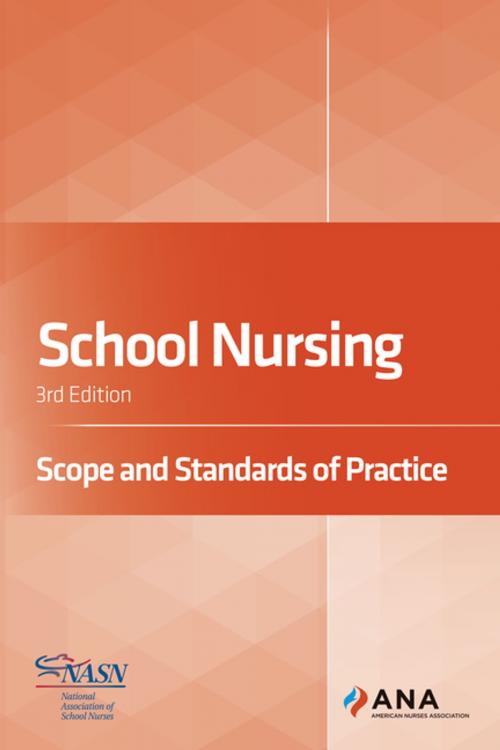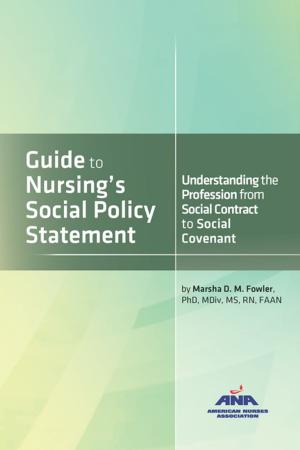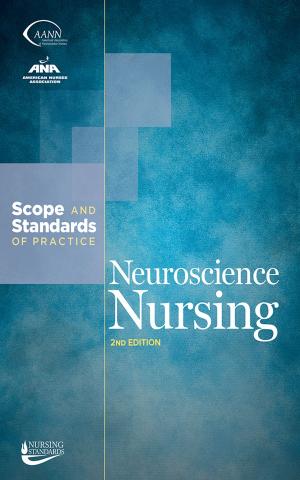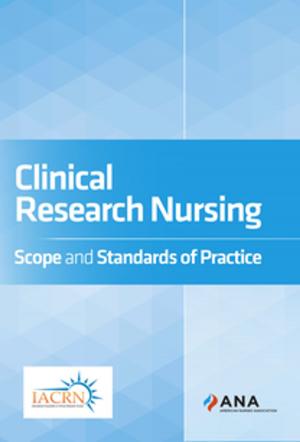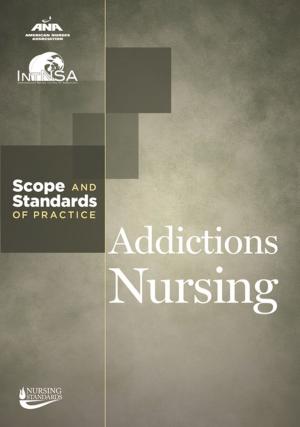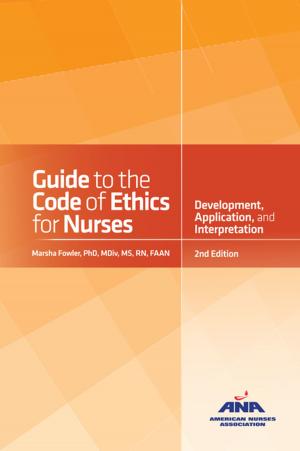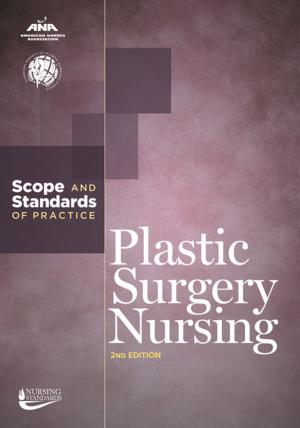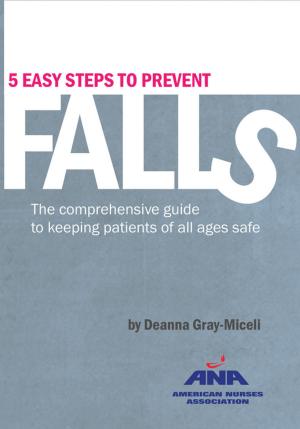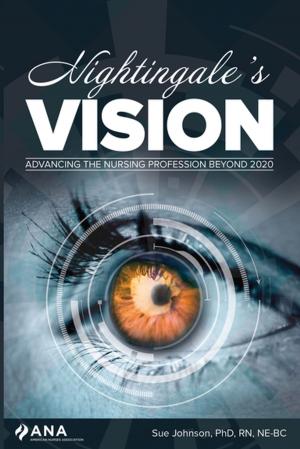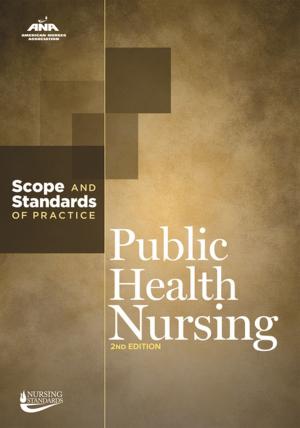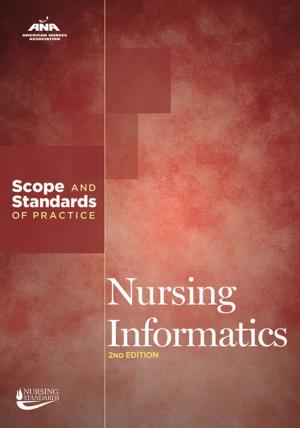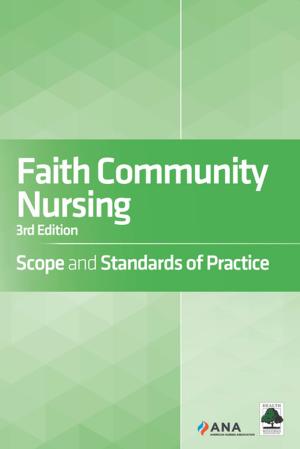School Nursing
Scope and Standards of Practice, 3rd Edition
Nonfiction, Health & Well Being, Medical, Nursing, Pediatric & Neonatal, Research & Theory, Reference| Author: | American Nurses Association, National Association of School Nurses | ISBN: | 9781558107212 |
| Publisher: | American Nurses Association | Publication: | July 31, 2017 |
| Imprint: | Nursesbooks | Language: | English |
| Author: | American Nurses Association, National Association of School Nurses |
| ISBN: | 9781558107212 |
| Publisher: | American Nurses Association |
| Publication: | July 31, 2017 |
| Imprint: | Nursesbooks |
| Language: | English |
The premier resource for today's school nurses, School Nursing: Scope and Standards of Practice, 3rd Edition is by school nurses for school nurses, who often can be the only healthcare provider in an educational setting. Bridging those two worlds is but one distinctive challenge of this nursing specialty. Updated competencies are at the heart of the publication's 20 standards statements, which frame the evaluation of practice outcomes and goals of all school nurses and delineate what is expected of their practice, by their healthcare peers and others in educational settings. Its scope of practice—the what, how, where, when, who, and why of their practice—is the context for applying these standards. What school nursing is: The definition and description of school nursing practice, and its five tenets, which characterize its conduct and thread through the scope and standards of that practice. How school nurses practice professionally: The ways, means, methods, processes, and manner by which the school nurse practices to create and sustained health-oriented system of care, including interprofessional collaboration. Where school nursing occurs: Settings including school-based health centers and wellness centers, and locations away from or outside of school or the school day, all which need to be healthy work and learning environments. When school nursing occurs: Whenever research and evidence-based nursing is needed to advance the well-being, academic success, and lifelong achievement of each student; encompasses special-needs and environmental health issues. Who school nurses are: RNs, graduate-level-prepared RNs, and APRNs who have been educated, titled, and maintain active licensure to practice; some statistical context and details on professional competence and its evaluation fill out this portrait. Why school nursing: School nurses advocate for a diverse array of students, families, and school communities while supporting student health, safety, and learning; they are guided by nursing's ethical code a code of ethics specific to school nursing, and a culturally congruent and holistic approach to the nursing process. School Nursing: Scope and Standards of Practice, 3rd Edition covers the full extent of nurse practice at all levels and in all settings and roles. It is a must-have for the practicing or aspiring school nurse and a useful resource for allied interprofessional practitioners and stakeholders. About ANA's Specialty Nursing Standards Since the late 1990s, ANA has partnered with other nursing organizations to establish a formal process for recognition of specialty areas of nursing practice. This includes the criteria for approving the specialty itself and the scope statement, and an acknowledgment by ANA of the standards of practice for that specialty. Because of the significant changes in the evolving nursing and healthcare environments, ANA's approval of specialty nursing scope statements and its acknowledgment of specialty standards of practice remain valid for five years, starting from the publication date of the documents. The standards and some of the scope of practice section in this publication are based on language and concepts from ANA's Nursing: Scope and Standards of Practice, 3rd Edition, a helpful supplement to this specialty text. It is also of optimal use with two complementary ANA texts: Guide to Nursing's Social Policy Statement and Guide to the Code of Ethics for Nurses. Together, these three books help guide nursing practice, thinking, and decision-making. The set (Essentials of Nursing Practice Package; Pub# FNDN2015) is proving useful as a professional reference, classroom textbook, in-service training guide, and credentialing exam resource.
The premier resource for today's school nurses, School Nursing: Scope and Standards of Practice, 3rd Edition is by school nurses for school nurses, who often can be the only healthcare provider in an educational setting. Bridging those two worlds is but one distinctive challenge of this nursing specialty. Updated competencies are at the heart of the publication's 20 standards statements, which frame the evaluation of practice outcomes and goals of all school nurses and delineate what is expected of their practice, by their healthcare peers and others in educational settings. Its scope of practice—the what, how, where, when, who, and why of their practice—is the context for applying these standards. What school nursing is: The definition and description of school nursing practice, and its five tenets, which characterize its conduct and thread through the scope and standards of that practice. How school nurses practice professionally: The ways, means, methods, processes, and manner by which the school nurse practices to create and sustained health-oriented system of care, including interprofessional collaboration. Where school nursing occurs: Settings including school-based health centers and wellness centers, and locations away from or outside of school or the school day, all which need to be healthy work and learning environments. When school nursing occurs: Whenever research and evidence-based nursing is needed to advance the well-being, academic success, and lifelong achievement of each student; encompasses special-needs and environmental health issues. Who school nurses are: RNs, graduate-level-prepared RNs, and APRNs who have been educated, titled, and maintain active licensure to practice; some statistical context and details on professional competence and its evaluation fill out this portrait. Why school nursing: School nurses advocate for a diverse array of students, families, and school communities while supporting student health, safety, and learning; they are guided by nursing's ethical code a code of ethics specific to school nursing, and a culturally congruent and holistic approach to the nursing process. School Nursing: Scope and Standards of Practice, 3rd Edition covers the full extent of nurse practice at all levels and in all settings and roles. It is a must-have for the practicing or aspiring school nurse and a useful resource for allied interprofessional practitioners and stakeholders. About ANA's Specialty Nursing Standards Since the late 1990s, ANA has partnered with other nursing organizations to establish a formal process for recognition of specialty areas of nursing practice. This includes the criteria for approving the specialty itself and the scope statement, and an acknowledgment by ANA of the standards of practice for that specialty. Because of the significant changes in the evolving nursing and healthcare environments, ANA's approval of specialty nursing scope statements and its acknowledgment of specialty standards of practice remain valid for five years, starting from the publication date of the documents. The standards and some of the scope of practice section in this publication are based on language and concepts from ANA's Nursing: Scope and Standards of Practice, 3rd Edition, a helpful supplement to this specialty text. It is also of optimal use with two complementary ANA texts: Guide to Nursing's Social Policy Statement and Guide to the Code of Ethics for Nurses. Together, these three books help guide nursing practice, thinking, and decision-making. The set (Essentials of Nursing Practice Package; Pub# FNDN2015) is proving useful as a professional reference, classroom textbook, in-service training guide, and credentialing exam resource.
